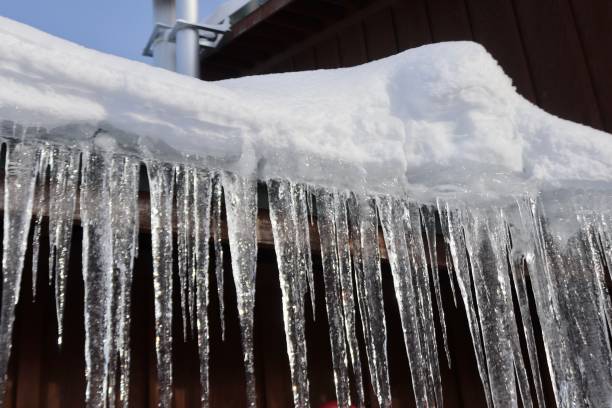Avoiding Pipes from Cold Weather: Top Strategies
Avoiding Pipes from Cold Weather: Top Strategies
Blog Article
We've noticed this post about Preventing and dealing with frozen pipes listed below on the internet and felt it made good sense to discuss it with you in this article.

Winter can ruin your pipes, especially by freezing pipelines. Below's how to stop it from happening and what to do if it does.
Introduction
As temperatures decrease, the risk of frozen pipes increases, potentially leading to pricey fixings and water damages. Recognizing exactly how to prevent icy pipes is vital for house owners in chilly climates.
Recognizing Frozen Pipes
What creates pipelines to freeze?
Pipes freeze when subjected to temperature levels listed below 32 ° F (0 ° C) for prolonged periods. As water inside the pipelines ices up, it broadens, putting pressure on the pipeline walls and potentially triggering them to rupture.
Dangers and damages
Frozen pipes can lead to supply of water disruptions, building damages, and expensive repair services. Burst pipelines can flooding homes and cause substantial architectural damages.
Indicators of Frozen Pipes
Identifying frozen pipes early can avoid them from breaking.
Just how to determine frozen pipes
Seek decreased water flow from taps, uncommon smells or sounds from pipes, and noticeable frost on exposed pipelines.
Prevention Tips
Insulating susceptible pipelines
Wrap pipes in insulation sleeves or utilize warmth tape to protect them from freezing temperatures. Focus on pipelines in unheated or outside locations of the home.
Home heating strategies
Maintain indoor rooms effectively warmed, particularly areas with plumbing. Open up cabinet doors to enable cozy air to circulate around pipes under sinks.
Securing Exterior Plumbing
Garden pipes and outdoor taps
Separate and drain garden pipes prior to wintertime. Set up frost-proof faucets or cover outside taps with protected caps.
What to Do If Your Pipes Freeze
Immediate activities to take
If you think icy pipelines, maintain taps open up to relieve pressure as the ice melts. Use a hairdryer or towels soaked in warm water to thaw pipelines gradually.
Long-Term Solutions
Architectural changes
Take into consideration rerouting pipelines away from exterior walls or unheated locations. Add extra insulation to attics, cellars, and crawl spaces.
Updating insulation
Purchase top quality insulation for pipes, attic rooms, and walls. Correct insulation assists keep constant temperatures and minimizes the risk of icy pipes.
Final thought
Avoiding icy pipes needs aggressive steps and fast actions. By understanding the reasons, indications, and preventive measures, house owners can safeguard their pipes during winter.
6 Proven Ways to Prevent Frozen Pipes and Protect Your Home
Disconnect and Drain Garden Hoses
Before winter arrives, start by disconnecting your garden hoses and draining any remaining water. Close the shut-off valves that supply outdoor hose bibs and leave the outdoor faucet open to allow any residual water to drain. For extra protection, consider using faucet covers throughout the colder months. It’s also important to drain water from any sprinkler supply lines following the manufacturer’s directions.
Insulate Exposed Pipes
Insulating your pipes is an effective way to prevent freezing. Pipe insulation is readily available at home improvement stores and is relatively inexpensive. Pay close attention to pipes in unheated areas such as the attic, basement, crawl spaces, or garage. Apply foam insulation generously to create a buffer against the cold. You can also wrap your pipes in heat tape or thermostat-controlled heat cables for added warmth.
Seal Air Leaks
Inspect your home for any cracks or openings that could let in cold air. Seal any holes around the piping in interior or exterior walls, as well as the sill plates where your home rests on its foundation. Additionally, make sure to keep your garage door closed unless you’re entering or exiting. Leaving it open creates a significant air leak that can lead to frozen pipes.
Allow Warm Air Circulation
During cold snaps, it’s essential to allow warm air to circulate evenly throughout your home. Leave interior doors ajar to promote better airflow. Open kitchen and bathroom cabinets to help distribute heat consistently around the rooms. If you have small children or pets, be sure to remove any household chemicals or potentially harmful cleaners from open cabinets for safety.
Let Faucets Drip
A small trickle of water can make a big difference in preventing ice formation inside your pipes. When temperatures drop significantly, start a drip of water from all faucets served by exposed pipes. This continuous flow helps prevent the water from freezing. Additionally, running a few faucets slightly can relieve pressure inside the pipes, reducing the chances of a rupture if the water inside does freeze.
https://choateshvac.com/6-proven-ways-to-prevent-frozen-pipes-and-protect-your-home/

We were shown that article on Winter Plumbing Precautions: Preventing Frozen Pipes through a pal on another website. Enjoyed our post? Please quickly share it. Let somebody else check it out. I am grateful for your time. Come back soon.
Book Service Now Report this page